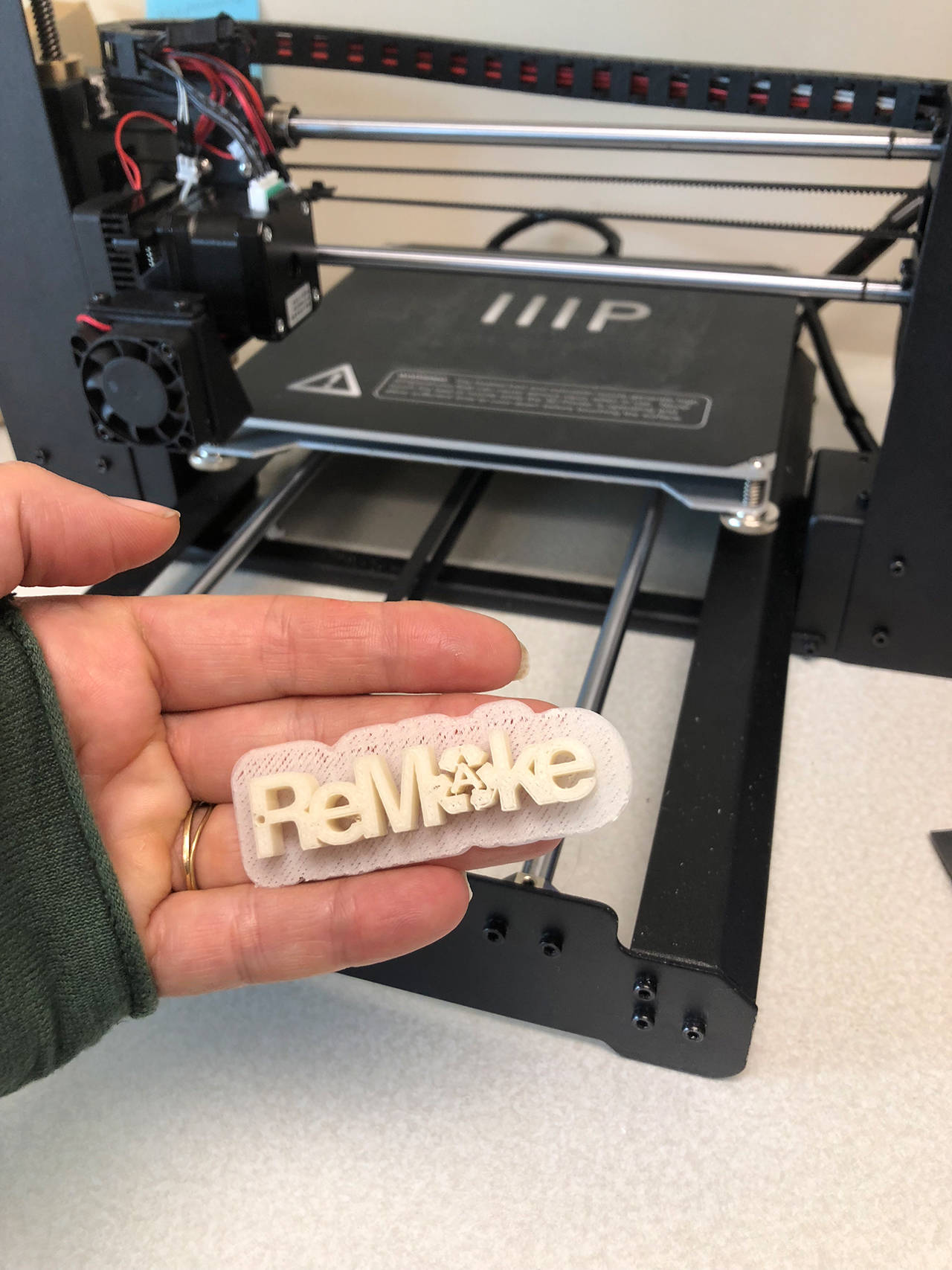Submitted by Lopez Solid Waste Disposal District
Even before China’s plastics ban, Lopez Solid Waste Disposal District was already thinking about how to recycle plastics locally. After researching global recycling markets, LSWDD’s Nikyta Palmisani discovered Recyclebots. Conceived by Joshua Pearce of the University of Michigan, a professor who has a doctorate in engineering, Recyclebots are created to recycle plastics pollution and turn the plastic into 3D printer filament. He then created 3D printers called RepRaps: rapidly replicating 3D printers — meaning 3D printers that helped print more 3D printers. Pearce initially thought that developing countries that had high levels of plastics pollution and little local manufacturing would be prime candidates for this work. Palmisani saw Lopez as a good fit for this kind of innovation and used his model to create the ReMake Lab. To see the full presentation of the ReMake Lab, come at 7 p.m. on Wednesday, May 9 to Grace Church.
The ReMake Lab takes its name from a combination of the “re” of the 3Rs (reduce, reuse, recycle) and to “make” as in makers. Makers are defined as technology-based DIYers. To most Lopezians, this sounded far too space age for our rural island. But with the help of local Ph.D. engineers Page Read and Brad Buchanan, the project became a reality. The ReMake Lab also had an educational component and a dream team of four students: Ashi Bartolucci, Nora Zapalac, Naomi Vilet and Kate Combs all participated from design to completion. As of April, LSWDD has now printed the first 3D print made from recycled plastic filament created on Lopez.
A filament is like a hot glue stick — it melts but doesn’t burn and becomes the material that 3D prints are made of (imagine a giant hot glue gun). The filament is usually 1.75 millimeters and spooled like fishing line. Our extruder takes shredded recyclable plastics and melts them down into the thin filament, then a winder wraps it into spools. Filament made from virgin plastic can range from $20 to $40 per kilogram spool. In preparation for the 3D printing revolution, making filament on Lopez combines huge cost savings while recycling plastics locally. 3D printing is a way to manufacture objects locally thus reducing the time, cost and emissions produced from shipping objects onto Lopez.
3D printing might continue to seem far away, but the revolution that is coming sooner than many think. Most of us have 2D printers at home. It is estimated that in 3 to 5 years, we will all have 3D printers (or access to one) in our homes as well. LSWDD purchased a 3D printer in November 2016, and assisted Lopez School to also purchase one. STEM (science, technology, engineering and mathmatics) classes are working with the school’s 3D printer, and the LSWDD printer has printed a hopper for the extruder that makes the filament in addition to many other printed objects. The most impressive print to date was made by the dream team who printed a prosthetic finger for last year’s STEM night.
LSWDD will be presenting our ReMake Lab at both the Washington State Recycling Association at its annual conference next month in Blaine, Washington, and in California at the Bay Area Maker Faire, the global flagship of all Maker Faires. Lopezians are invited to join LSWDD and SWAP for a public presentation of the ReMake Lab innovations and process on May 9. For questions, email nikytap@lopezsolidwaste.org.




